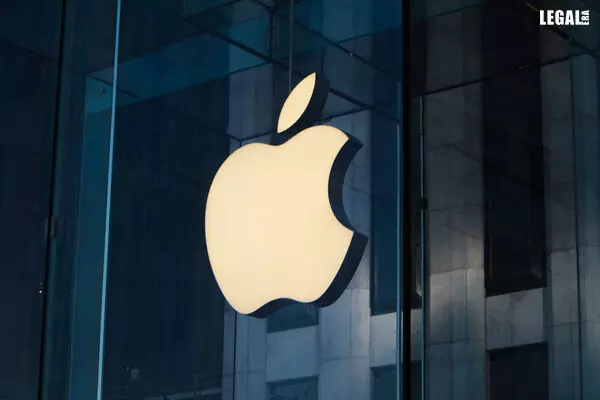- Home
- News
- Articles+
- Aerospace
- Artificial Intelligence
- Agriculture
- Alternate Dispute Resolution
- Arbitration & Mediation
- Banking and Finance
- Bankruptcy
- Book Review
- Bribery & Corruption
- Commercial Litigation
- Competition Law
- Conference Reports
- Consumer Products
- Contract
- Corporate Governance
- Corporate Law
- Covid-19
- Cryptocurrency
- Cybersecurity
- Data Protection
- Defence
- Digital Economy
- E-commerce
- Employment Law
- Energy and Natural Resources
- Entertainment and Sports Law
- Environmental Law
- Environmental, Social, and Governance
- Foreign Direct Investment
- Food and Beverage
- Gaming
- Health Care
- IBC Diaries
- In Focus
- Inclusion & Diversity
- Insurance Law
- Intellectual Property
- International Law
- IP & Tech Era
- Know the Law
- Labour Laws
- Law & Policy and Regulation
- Litigation
- Litigation Funding
- Manufacturing
- Mergers & Acquisitions
- NFTs
- Privacy
- Private Equity
- Project Finance
- Real Estate
- Risk and Compliance
- Student Corner
- Take On Board
- Tax
- Technology Media and Telecom
- Tributes
- Viewpoint
- Zoom In
- Law Firms
- In-House
- Rankings
- E-Magazine
- Legal Era TV
- Events
- Middle East
- Africa
- News
- Articles
- Aerospace
- Artificial Intelligence
- Agriculture
- Alternate Dispute Resolution
- Arbitration & Mediation
- Banking and Finance
- Bankruptcy
- Book Review
- Bribery & Corruption
- Commercial Litigation
- Competition Law
- Conference Reports
- Consumer Products
- Contract
- Corporate Governance
- Corporate Law
- Covid-19
- Cryptocurrency
- Cybersecurity
- Data Protection
- Defence
- Digital Economy
- E-commerce
- Employment Law
- Energy and Natural Resources
- Entertainment and Sports Law
- Environmental Law
- Environmental, Social, and Governance
- Foreign Direct Investment
- Food and Beverage
- Gaming
- Health Care
- IBC Diaries
- In Focus
- Inclusion & Diversity
- Insurance Law
- Intellectual Property
- International Law
- IP & Tech Era
- Know the Law
- Labour Laws
- Law & Policy and Regulation
- Litigation
- Litigation Funding
- Manufacturing
- Mergers & Acquisitions
- NFTs
- Privacy
- Private Equity
- Project Finance
- Real Estate
- Risk and Compliance
- Student Corner
- Take On Board
- Tax
- Technology Media and Telecom
- Tributes
- Viewpoint
- Zoom In
- Law Firms
- In-House
- Rankings
- E-Magazine
- Legal Era TV
- Events
- Middle East
- Africa
U.S. Court Rejected Apple’s Plea to Dismiss Class-Action Lawsuit Against Tim Cook

U.S. Court Rejected Apple’s Plea to Dismiss Class-Action Lawsuit Against Tim Cook
The U.S. District Court has rejected Apple’s plea to overturn a class-action lawsuit that accused Chief Executive Tim Cook of defrauding shareholders by concealing falling demand for iPhones in China.
The lawsuit dates back to November 2018 when Cook commented on analyst call, in which Cook said that Apple was facing what he described as sales pressure in some markets such as Brazil, India, Russia and Turkey, where currencies had weakened. However, he then stated, “I would not put China in that category.”
According to Apple, Cook’s comments were a statement of opinion, and therefore protected. The claim failed to plead any actionably false or misleading statement, according to Apple's attorneys.
Thereafter, Apple informed the suppliers a few days later to curb production. Further on 2 January, 2019, unexpectedly, the company slashed its quarterly revenue forecast by up to $9 billion, blaming U.S.-China trade tensions.
The lowered revenue forecast was Apple’s first since the iPhone’s launch in 2007, and the Cupertino, California-based company’s shares fell 10 per cent the next day.
The U.S. District Judge Yvonne Gonzalez Rogers said jurors could reasonably infer that Cook was discussing Apple's sales outlook in China, not past performance or the impact of currency changes.
He added, “A reasonable jury could find that failure to disclose these risks caused plaintiff’s harm.”
Rogers also noted that Apple knew China's economy had slowed, and data suggested that demand could fall. Failure to disclose the data would have unnecessarily put investors at risk.
Meanwhile in 2020, the shareholders were told they could bring a class-action suit against Apple over Cook's comments.
The lawsuit officially gained class action status in February of 2022. Shareholders and the lead plaintiff Norfolk County Council, believed the revised guidance was too late, and that Apple should have foreseen the issue, given that it took action to deal with it in China just days after Cook’s remarks.
Norfolk County Council runs the Norfolk Pension Fund, located in Norwich, England, valued at multiple billions of pounds. In the original lawsuit, it was claimed the fund lost close to $1 million.



